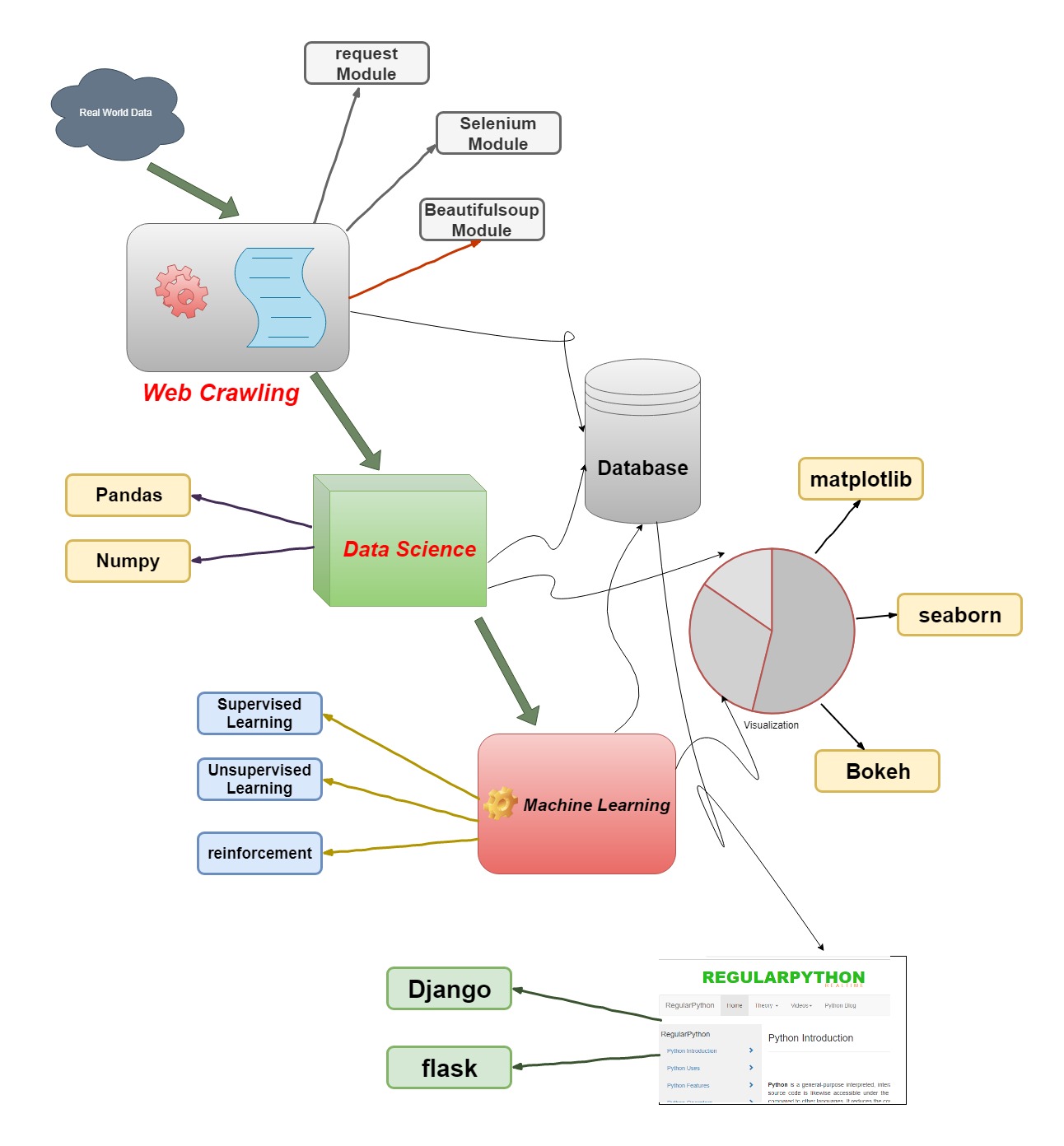regularpython@gmail.com
Python Exceptions
#Exception Base class for all exceptions
try:
1/0
except Exception as e:
print(e)
# 1/0
print("hello")
#StopIteration Raised when the next() method of an iterator does not point to any object.
a = [1,2,3,4]
value = iter(a)
print(next(value))
print(next(value))
print(next(value))
print(next(value))
print(next(value))
print(next(value))
try:
a = [1,2,3,4]
value = iter(a)
print(next(value))
print(next(value))
print(next(value))
print(next(value))
print(next(value))
print(next(value))
except StopIteration:
print("StopIteration Exception raised.")
except Exception as e:
print(e)
#SystemExit Raised by the sys.exit() function.
import sys
sys.exit("SystemExit Raised by the sys.exit() function.")
print("hello world.")
try:
sys.exit("SystemExit Raised by the sys.exit() function.")
except BaseException as e:
print(e)
print("hello world.")
#ArithmeticError Base class for all errors that occur for numeric calculation.
number = 10/0
try:
number = 10/0
except ArithmeticError as e:
print(e)
#OverflowError Raised when a calculation exceeds maximum limit for a numeric type.
import math
# math.exp(1000)
try:
math.exp(1000)
except ArithmeticError as e:
print(e)
#FloatingPointError Raised when a floating point calculation fails.
print(0.2*10**1000)
#ZeroDivisionError Raised when a division or modulo by zero takes place for all numeric types.
number = 10/0
try:
number = 10/0
except ArithmeticError as e:
print(e)
#AttributeError Raised in case of failure of attribute reference or assignment.
a = [1, 2, 3, 4, 5]
# a.hi()
try:
a.hi()
except AttributeError as e:
print(e)
#EOFError Raised when there is no input from either the raw_input() or input() function and the end of file is reached.
#ctrl+z
try:
name = input("What is your name? ")
except EOFError as e:
print(e)
# ImportError Raised when an import statement fails.
import tutorial
#KeyboardInterrupt Raised when the user interrupts program execution, usually by pressing Ctrl+c.
while True:
print("hi")
#IndexError Raised when an index is not found in a sequence.
a = [1,2,3,4]
# print(a[10])
try:
print(a[10])
except IndexError as e:
print(e)
#KeyError Raised when the specified key is not found in the dictionary.
student = {"name":"tutorial", "age":22}
print(student["rank"])
try:
print(student["rank"])
except KeyError as e:
print(e)
#NameError Raised when an identifier is not found in the local or global namespace.
print(name)
try:
name
except NameError as e:
print(e)
#UnboundLocalError Raised when trying to access a local variable in a function or method but no value has been assigned to it.
counter = 0
def increment():
counter += 1
increment()
#IOError Raised when an input/ output operation fails, such as the print statement or the open() function when trying to open a file that does not exist.
try:
open("fff")
except Exception as e:
print(e)
#SyntaxError Raised when there is an error in Python syntax.
print("helll)
#IndentationError Raised when indentation is not specified properly.
print("hello")
